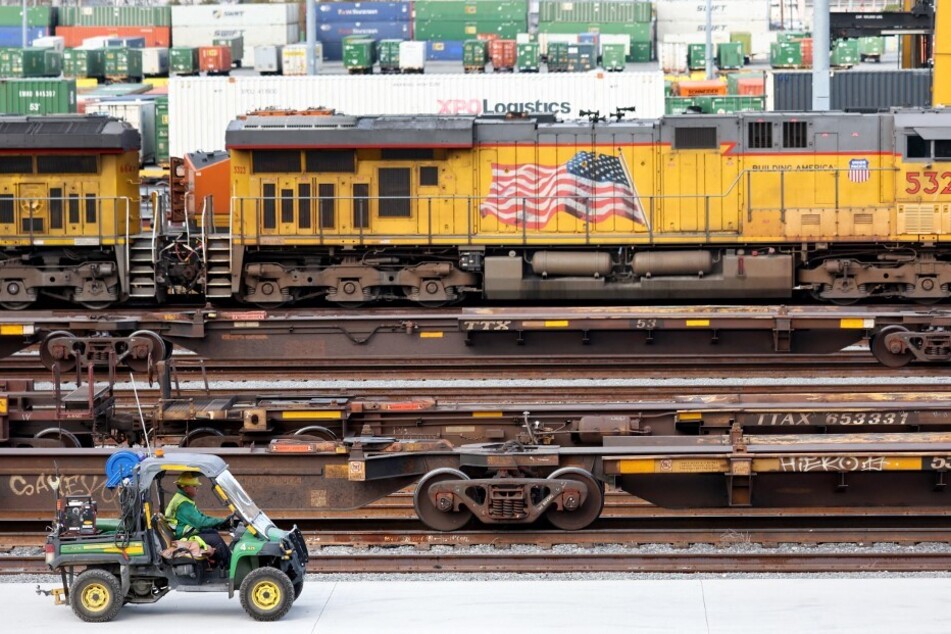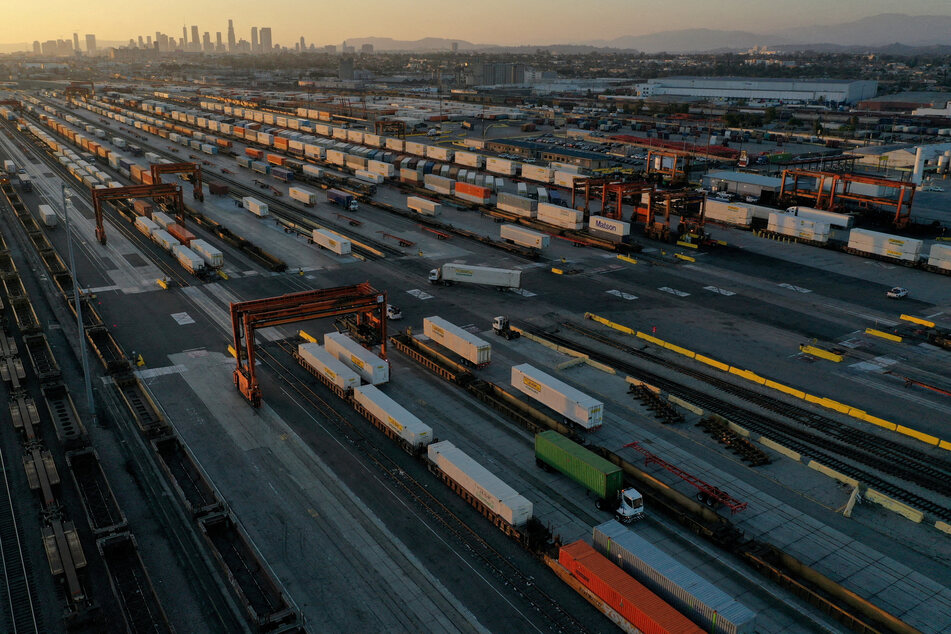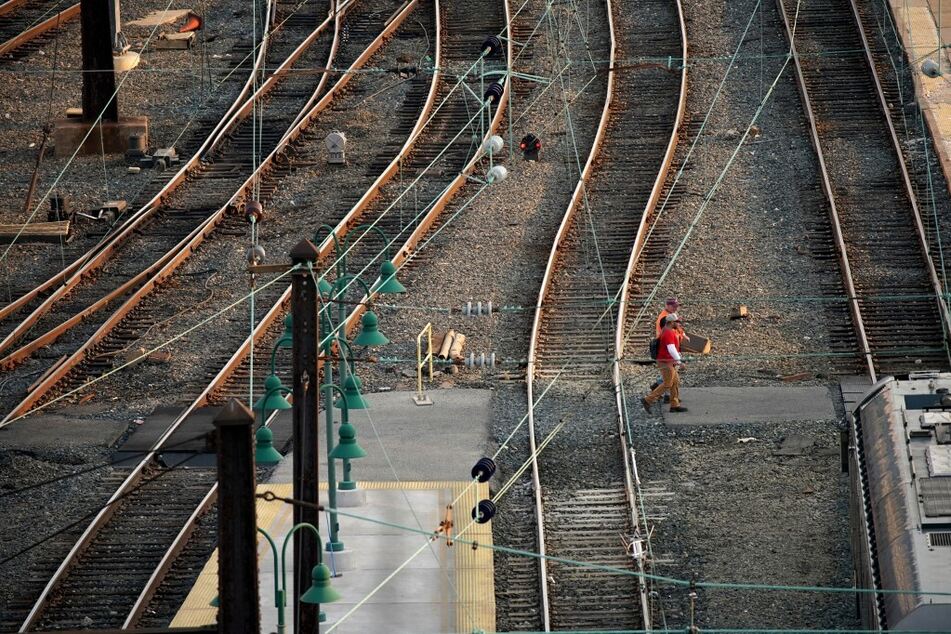Railroad Workers United call out corporate greed as nationwide strike looms
Atlanta, Georgia - Around 55% of all US rail labor rejected a tentative contract agreement brokered in September, leaving the door open for a potential strike that could cost the country's economy an estimated $2 billion per day. According to Railroad Workers United Treasurer Hugh Sawyer, the decision was a long time coming.

A locomotive engineer at Norfolk Southern with 34 years' experience, Sawyer has witnessed firsthand how working conditions on the railways have deteriorated over the last decade. He attributes those changes to private companies putting profits over people, as corporate execs and financiers bring in record sums while workers are left with scraps.
The labor concerns on the rail lines extend beyond meager wages to quality-of-life issues stemming from punitive attendance policies, scheduling changes, and the inability to guarantee time off. Workers and their loved ones are asked to make increasingly difficult sacrifices for the job with little recompense.
"In the past, when I came to work out here, you worked your butt off, and then when you just had all that you could take, you'd call down there and say, 'Mark me off.' That's all gone," Sawyer told TAG24 NEWS. "Now, I couldn't make an appointment on my designated off-day and know that I'm actually going to be there, and that's what's got everybody in an uproar."
Worsening conditions on the railways are also having an impact on the efficiency of transport and worker safety. "I'm on some locomotive with a problem, and it used to be I could report it and by God, it'd get fixed. Now, it's just put some duct tape on it and keep on trucking – or railroading," Sawyer said.
The steady decay of railroad infrastructure and working conditions, along with a string of furloughs and other cost-cutting measures during the coronavirus pandemic, pushed workers past the point of no return, setting the stage for a massive labor uprising.
Mounting frustration with rail companies and union leadership

Rail workers around the country are banding together to say enough is enough, and Sawyer blamed both the rail companies and union leadership for getting them to that point. Recent contract negotiations have only reinforced that opinion.
The tentative agreement rejected this week proposed a 24% pay raise over the five-year period from 2020 to 2024. The increase has been touted by rail companies and the media as "historic," but according to Sawyer, it doesn't account for inflation or include cost-of-living adjustments.
The deal also grants $1,000 per year over those five years. While that might sound good on paper, Sawyer said those bonuses would be eaten up in increased insurance costs.
Apart from inadequate compensation, the agreement does not address workers' concerns over scheduling and time off that make it difficult for them to enjoy their private lives.
While workers are expected to accept less and less, those calling the shots are taking home more and more. Bosses often work less than five days per week, while many laborers are on call 24/7.
"These guys who run the railroads have the goodies. They have big bonuses and pay raises and everything, but they don't want us to have any of it," Sawyer said. "They don't feel they have a duty to the American people to maybe forego a little bit of profit to do what's in the interest of the American economy. They don't care about anything but themselves and making their money."
Meanwhile, union leadership has not done enough to put workers first and fight for their real needs, in Sawyer's view. He sees the tentative deal as a reflection of that failure.
"I'm tired of being treated like an idiot, and I think a lot of people are," he lamented. "Obviously, they have no clue what's going on out here in the real world on the railroad."
Advocating for public ownership to solve rail company failures

Many of the problems Sawyer has witnessed in recent years come down to pure, unchecked corporate greed, he believes.
One solution, endorsed by the cross-union group Railroad Workers United (RWU) in an October resolution, is putting the railways under public ownership. That would make the US government responsible for maintaining rail infrastructure while giving private companies the option to lease trains and run freight.
The idea is by no means radical. Many modes of transportation, including the highway, waterway, and airway systems, are already publicly owned. In fact, the US is an outlier as perhaps the only country in the world that does not give any government subsidies for freight rail.
Plus, it wouldn't be the first time the US has experimented with public ownership of the railways. Private rail companies were so inept at getting critical military supplies from point A to point B during World War I that the federal government was forced to step in. Under the United States Railroad Administration, which lasted from late 1917 to early 1920, freight transport became much more efficient.
While public ownership wouldn't necessarily be an immediate fix to all the problems around labor conditions, RWU is convinced it would address the increasing dysfunction of US rail networks. "Particularly since the hedge funds got involved, they're selling off assets left and right. Rail is disappearing everywhere, or they're sloughing it off on Class III railroads, little short lines, a lot of whom end up ultimately abandoning the rail," Sawyer explained. "Once you abandon a rail line, you never get it back."
Keeping the rail networks in order is crucial to the US economy, as trains still account for around a third of freight transport and do far less damage to the environment than trucking. Passenger trains, which run on many of the same tracks, are also impacted when freight rail companies are given free rein to seek greater profits at the expense of performance.
"The federal government can do some things a lot more efficiently – believe it or not, contrary to what Fox News says – than private entities, and I think we've reached a breaking point here," Sawyer insisted. "I'm not a socialist necessarily, but I'm becoming one, I guess, in my old age."
Ramping up the fight for a fair contract

While RWU has committed to the long-term battle for public ownership, members are also laser-focused on the immediate fight for a fair contract.
Though a majority of workers have already rejected the tentative deal, union leadership has agreed to a strike moratorium until December 9. Sawyer fears this delay may be yet another attempt to stifle workers' collective power.
His theory is that the parties already have a back-up proposal which might tack on a few side benefits without addressing the brunt of workers' frustrations. He then believes Congress will force the agreement upon workers and block a strike, in accordance with the Railway Labor Act.
That's why RWU is working to flip the script: "We're going to push right now for the membership to quit just sitting there talking about the union leadership like they're some third-party entity. They work for us, and this agreement is up in two years. That means in a year, we can go ahead and file Section 6 notices."
For his own part, Sawyer would love to see workers defy a potential contract imposed by Congress, which he believes could result in mass resignations in an industry already plagued by labor shortages, and instead launch an illegal strike. "I just see it coming down the pipe that there's going to be a day of reckoning, so let's go ahead and have the day of reckoning and maybe make my life a little better in the process," he said.
Sawyer encouraged supporters to learn more about railroad workers' demands and show their solidarity by checking out the resources on the RWU website.
"We're not asking to make a million dollars a day like our CEO. We're just asking for a decent living and decent working conditions and maybe a little bit of respect," Sawyer concluded.
Cover photo: Courtesy of Hugh Sawyer

